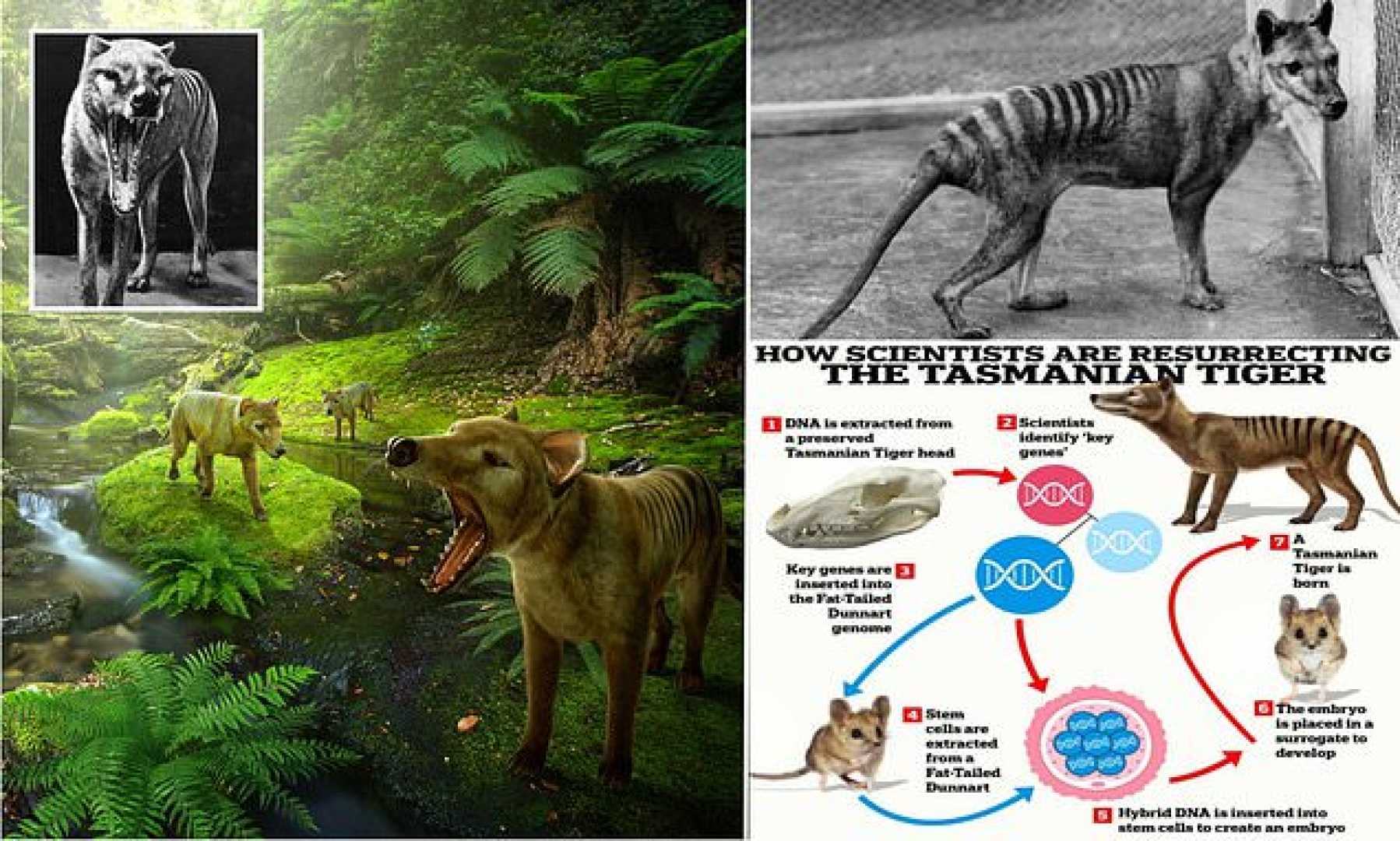News
Scientists Progress in Thylacine De-Extinction Efforts

The once-extinct Tasmanian tiger, also known as the thylacine, may potentially roam the Earth again due to breakthroughs reported by a group of U.S. and Australian researchers. The thylacine, a wolf-like marsupial native to Tasmania and last seen in 1936, is the focus of a de-extinction project spearheaded by Colossal Biosciences, a biotechnology firm based in Texas.
Colossal Biosciences, renowned for its ambitious plans to revive other extinct species such as the woolly mammoth, has utilized cutting-edge gene editing and reproductive technology in this endeavor. The research team claims to have achieved a 99.9% complete DNA sequence of the thylacine, extracted from a remarkably preserved 108-year-old specimen kept in ethanol at a Melbourne museum.
“The thylacine samples used for our new reference genome are among the best-preserved ancient specimens my team has worked with,” stated Beth Shapiro, Chief Science Officer at Colossal, highlighting the significance of the breakthrough. Professor Andrew Pask from the University of Melbourne, involved in the research, noted, “With this new resource in hand we will be able to determine what a thylacine could taste, what it could smell, what kind of vision it had and even how its brain functioned.”
The project employs gene editing to alter the genetic makeup of the fat-tailed dunnart, the thylacine’s closest living relative, to create an organism as similar as possible to the thylacine. More than 300 genetic modifications have been made so far, with researchers developing artificial reproductive methods similar to human IVF to assist in creating viable embryos.
Despite scientific optimism, the project faces skepticism and ethical debates. Some conservationists argue that the funds could be better used to preserve habitats for species currently endangered. Furthermore, detractors highlight the ecological challenges of reintroducing the thylacine to habitats that have drastically changed since its extinction.
Professor Jeremy Austin from the Australian Centre for Ancient DNA has described de-extinction as a “fairy tale science,” expressing doubts about the feasibility of such projects. However, proponents like Professor Pask suggest that advances in marsupial IVF stemming from the thylacine project could benefit conservation efforts for species like the Tasmanian devil.
Colossal’s initiatives extend beyond the scope of resurrecting extinct species, with its technology potentially offering conservation benefits. Ben Lamm, CEO of Colossal, emphasized the importance of the project’s scientific advancements, which could aid in the protection of critically endangered species.
At the upcoming SXSW festival in Sydney, Colossal is set to further discuss their progress and ambitions, with participation from prominent figures including actor Luke Hemsworth. Observers from the scientific community await with interest for tangible results, weighing the potential ecological impacts and benefits of reviving long-gone species.












